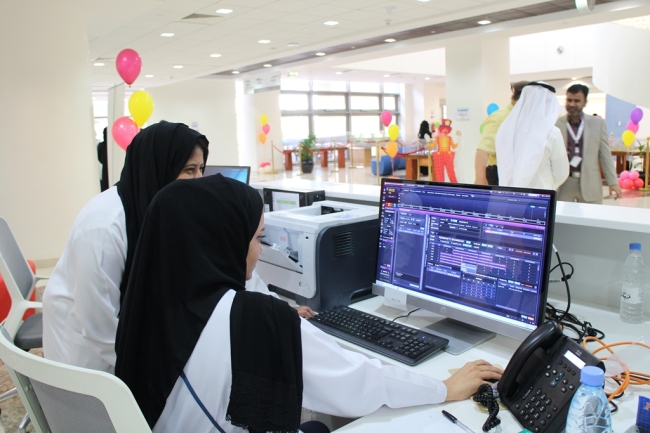The economies of South Korea and the Middle East are inseparable.
Korea depends on the Middle East’s abundant energy resources to fuel its manufacturing sector, while the region has counted on Korea’s construction workforce to modernize its infrastructure since the 1970s and 1980s or the “first Middle East boom” era.
The two economies now seek to expand their partnership beyond energy and plant construction to health care, information technology and food as they seek a second Middle East boom in the post-oil era.
Korean government officials and analysts say young professionals in diverse new industries are expected to lead the boom in the region.
“The Middle East has been actively preparing for the post-oil era by fostering other industrial sectors. This will further create opportunities for Korea to make inroads into the market,” said Lee Kwon-hyung, head of the Africa and the Middle East team at the Korea Institute for International Economic Policy.
A number of lucrative projects in the Middle East are in store for the Korean industry following President Park Geun-hye’s recent visit to four countries ― the UAE, Kuwait, Saudi Arabia and Qatar.
In addition to business opportunities created by the 2020 Qatar World Cup and the 2020 Dubai Expo, industrial projects worth some $760 billion will be launched by the Gulf Cooperation Council until 2017.
In March, the Korean government signed an agreement with Saudi Arabia to develop and commercialize system integrated modular advanced reactors, or SMART. Together, they will seek to enter other global markets with the technology.
This will also help Korea to win nuclear reactor deals worth some $2 billion in Saudi Arabia.
Health care is another sector in which the two partners will join forces to create value-added services.
Korea’s Yonsei University Severance Hospital has signed a contract to build a cancer center for women in Saudi Arabia’s capital of Riyadh by 2018.
SK Telecom, the country’s biggest mobile carrier, and its partner Seoul National University Hospital Bundang are currently developing medical information systems at six state hospitals in the largest Arab country.
One of the hospitals opened early this month.
“Patients from the Middle East used to prefer the U.S. and Europe for medical treatment. But more of them tend to visit Korea for medical tourism which shows that Korea’s medical service has competitiveness,” Lee of the KIEP said.
In the 1970s-1980s, Korea sent tens of thousands of engineers and laborers to the Middle East.
Since then, Korean companies have won a slew of construction projects in the region that laid the foundation for the two sides’ economic growth.
By Park Han-na (hnpark@heraldcorp.com)
Korea depends on the Middle East’s abundant energy resources to fuel its manufacturing sector, while the region has counted on Korea’s construction workforce to modernize its infrastructure since the 1970s and 1980s or the “first Middle East boom” era.
The two economies now seek to expand their partnership beyond energy and plant construction to health care, information technology and food as they seek a second Middle East boom in the post-oil era.
Korean government officials and analysts say young professionals in diverse new industries are expected to lead the boom in the region.
 |
| Saudi hospital employees look at a medical information system built by SK Telecom and Seoul National University Hospital Bundang, at King Abdullah Specialist Children Hospital in Riyadh, Saudi Arabia, on April 19. (Seoul National University Hospital Bundang) |
“The Middle East has been actively preparing for the post-oil era by fostering other industrial sectors. This will further create opportunities for Korea to make inroads into the market,” said Lee Kwon-hyung, head of the Africa and the Middle East team at the Korea Institute for International Economic Policy.
A number of lucrative projects in the Middle East are in store for the Korean industry following President Park Geun-hye’s recent visit to four countries ― the UAE, Kuwait, Saudi Arabia and Qatar.
In addition to business opportunities created by the 2020 Qatar World Cup and the 2020 Dubai Expo, industrial projects worth some $760 billion will be launched by the Gulf Cooperation Council until 2017.
In March, the Korean government signed an agreement with Saudi Arabia to develop and commercialize system integrated modular advanced reactors, or SMART. Together, they will seek to enter other global markets with the technology.
This will also help Korea to win nuclear reactor deals worth some $2 billion in Saudi Arabia.
Health care is another sector in which the two partners will join forces to create value-added services.
Korea’s Yonsei University Severance Hospital has signed a contract to build a cancer center for women in Saudi Arabia’s capital of Riyadh by 2018.
SK Telecom, the country’s biggest mobile carrier, and its partner Seoul National University Hospital Bundang are currently developing medical information systems at six state hospitals in the largest Arab country.
One of the hospitals opened early this month.
“Patients from the Middle East used to prefer the U.S. and Europe for medical treatment. But more of them tend to visit Korea for medical tourism which shows that Korea’s medical service has competitiveness,” Lee of the KIEP said.
In the 1970s-1980s, Korea sent tens of thousands of engineers and laborers to the Middle East.
Since then, Korean companies have won a slew of construction projects in the region that laid the foundation for the two sides’ economic growth.
By Park Han-na (hnpark@heraldcorp.com)




No comments:
Post a Comment